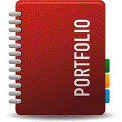Faculty-led Inquiry into Reflective and Scholarly Teaching (FIRST)

UNL Faculty Course Portfolios
Date of this Version
2016
Document Type
Portfolio
Abstract
Rising temperatures and extreme hydrometeorological and climate events are evidences of a changing climate. An increasing population together with their demands for food, energy and water make changes in climate evidence the need to train a new generation of multidisciplinary professionals with a clear understanding of the effects of a changing climate in their activities. Historically, climate sciences were used for scientific and weather operational contexts and engineers applied stationary assumptions for multi-term planning. My goal is to identify elements built from classroom experiences about (a) the suitability of a hydroclimatology course for engineers and scientists; (b) the multidisciplinary skills; (c) computational skills. I developed a completely new course in content and format. The content aims to show students local-to-global hydroclimatological experiences on science, engineering and entrepreneurship as “intellectual incentives”. The format aims to explore different forms of communicating knowledge from theoretical (lectures) to practical (labs), to explanatory (discussions). I assessed two classic aspects: (a) understanding; (b) application on three groups of students from environmental, engineering (3), and atmospheric (3) backgrounds. While analytical understanding was based on the students responses in what I call a 3-dimentional assessment (multiple choice, specific question responses, and analytical responses) the midterm, the practical understanding was based on students performance to use computational and modeling skills.
Included in
Atmospheric Sciences Commons, Engineering Commons, Higher Education Commons, Higher Education and Teaching Commons


Comments
Course portfolio developed as part of the UNL Peer Review of Teaching Project (peerreview.unl.edu)
Copyright (c) 2016 Francisco Munoz-Arriola